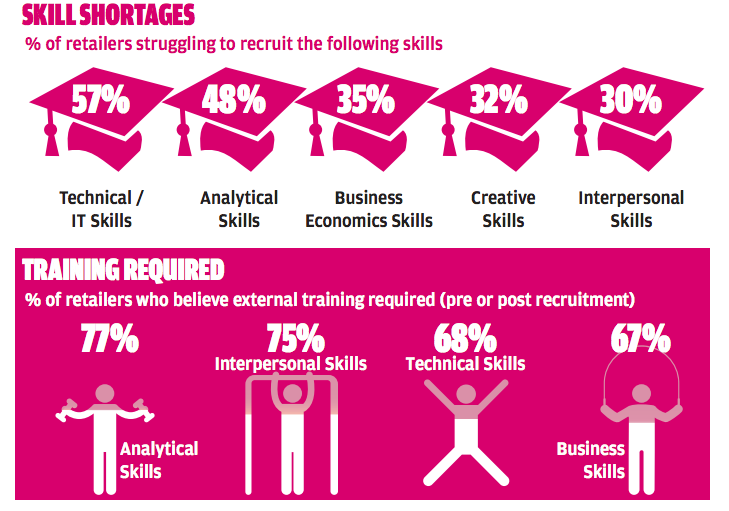Next Generation Fashion Opportunities

There’s no doubt that technology is impacting the apparel industry, including employment. According to a recent Fashion Retail Academy Report, by 2020, the UK will generate 60,000 new analytical, digital, technical, merchandising and supply chain management roles for its UK fashion industry. While these jobs are in high-demand, 57% of UK retailers say there are major skill gaps making it problematic to fill these positions.
So what does this mean for those aspiring graduates that are looking to enter the fashion industry? They will need to develop additional skills as fashion and retail professions evolve to be technology-based, while maintain its creativity.

Today, technical design is a big field fusing the gap between traditional handmade fashion and technology, but there is a future out there for additional positions and skills. The role of the designer and patternmaker will still exist, but will become more integrated with technology. For example, as technology advances and companies seek to integrate more with 3D, augmented reality or even smart fabrics, additional design positions such as a 3D designer or Virtual Reality Designer may appear.
In addition to design roles, the report indicated that in the next five years, analytical roles will grow more than 50%, and technical roles will grow by 30-40%. Data is gold, and adding new roles such data scientists to a company will help develop acute customer insights, to allow brands to create better product suited for their customers.
Social media roles are also growing with the increased desire for immediacy. Whether it’s See Now, Buy Now fashion or following instagram accounts of brands and models, companies are curating stories of their collections visually and virally to reach more people, instantly. In order to keep up with this content creation for brand and marketing engagement, companies will need to invest in roles for online marketing and social media. It is estimated that £15bn of online retail revenue was from social referrals in 2015, and social media spending is estimated to go from 9% to 22% of the overall budget in the next five years.
Although there will be an increase in analytical and technical roles, this comes with making other jobs obsolete. With the move to an omni-channel experience, e-commerce purchases, and supply chain digitization, many jobs will become automated or moved from traditional brick-and-mortar shops to digital roles. Even the British Retail Consortium predicted that there could be 900,000 fewer jobs in retail by 2025.
So what do future graduates need to enter the next generation fashion workforce? They need to invest time, along with their academic institutions, to have the right training and courses to fill these skill gaps. At the same time, brands will also need to shift their teams and develop programs to meet these skills, and to maintain their competitive edge in the fast-paced market.

 English
English  French
French  Italian
Italian  Spanish
Spanish 